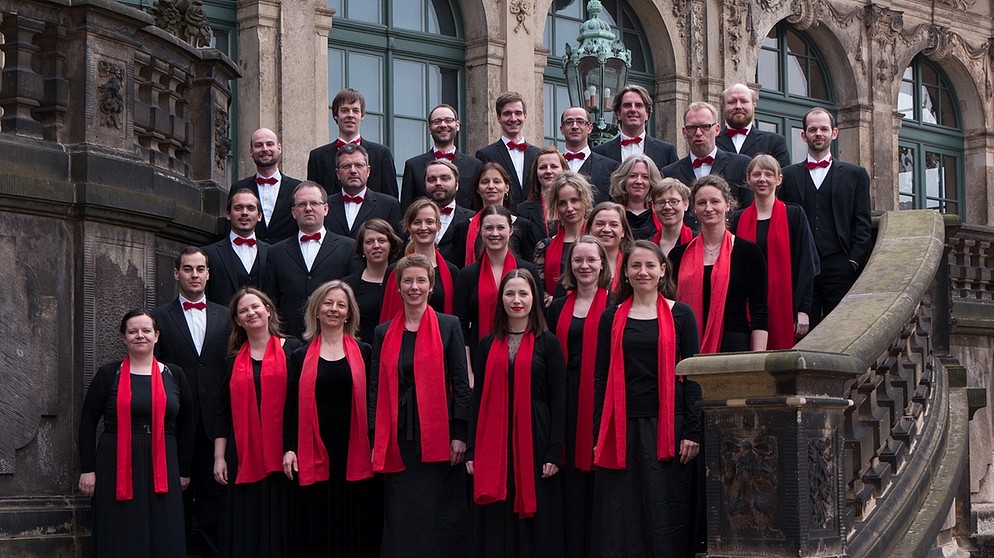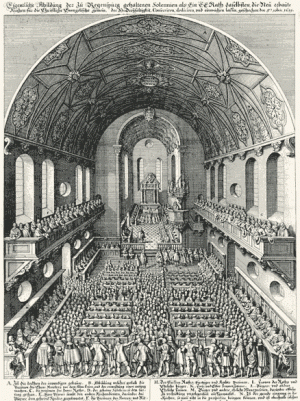Heinrich Schütz : Auferstehungshistorie and Musicalische Exequien from La Chapelle Rhénane led by Benoît Haller. La Chapelle Rhénane built its reputation on Schütz, with four of its original eight recordings dedicated to the composer. This acclaimed series is now being re-issued by Christophus Records, with new recordings planned for 2019. Schütz (1585-1672) was born one hundred years before J S Bach. He studied with Monteverdi, and is a link between the Italian and German baroque. He lived through the Thirty Years War, perhaps the most savage conflict Europe experienced before the 20th
century. Millions were killed, entire regions devastated. Although Schütz worked in relative safety for the Elector of Saxony, the world around him had been in turmoil since the Reformation. For Schütz, comfort was not a given. Schütz founded what is now the Staatskapelle Dresden but he didn't have job security. When he fell out of favour at court, he became destitute. His family died young. He lived on alone until the age of 87, which in those days was like being Methuselah.
The beauty of Schütz's music lies in its spirituality, inspired by the austere piety of the early Lutheran faith. The Auferstehungshistorie, the Resurrection of Jesus Christ, op3 SWV 050, was written for Easter 1623, sixty years before Bach was even born. The brightness of the singing in this La Chapelle Rhénane performance accentuates the purity of expression that makes this work so moving. Benoît Haller sings the Evangelist, his voice light and flexible, interacting well with the other singers emphasizing the polyphonic texture of the work. This highlights the fine balance in groups with a combination of voices, for example the voices singing Jesus. Good variety, too, in the part for Kleophas and his companions, their lines interweaving rhythmically. In the section "Die Elfe zu Jerusalem versammt", six voices, male and female, interact, emphasizing the unity of voices singing the words of Jesus "Friede sei mit euch!". The Conclusio draws together the whole ensemble, the word "Victoria!" repeated with joyous enthusiasm.
From the Resurrection to a funeral, with Musicalische Exequien op 7 SWV 279-81 (1635/6) for Schütz's patron Henry, Count of Reuss-Gera. A single voice intones "Nacket bin ich von Mutterliebe kommen", other voices and instruments then cradling around it. This is followed by three other sections, "Also hat Gott die Welt geliebt", "Unser Wandel ist im Himmel" and "Under Leben währet siebenzig Jahr", forming between them a cycle from birth to death, tenor leading in the beginning, basses towards the end, the finale for whole ensemble. A motette separates the first and second parts, forming a bridge between the reflections on life in the first part and the acceptance of death im the last. The mood in this Canticum Simeonis is solemn yet serene, for "Selig sind die Toten, die in dem Herren sterben".




